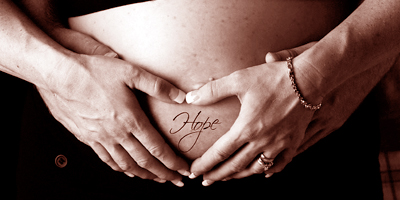
 The Be Not Afraid program for the Diocese of Charleston is slowly coming together.
The Be Not Afraid program for the Diocese of Charleston is slowly coming together.
Kathy Schmugge, assistant director of the family life office, said she is assembling a team of deanery coordinators and volunteers who will help parents cope with devastating prenatal news and support them as they continue the pregnancy.
It is important that the diocese has a very stable, experienced group to deal with the complicated grief these families suffer, she said.
One of their first tasks will be to answer the question of why. Not why did this happen, but why should a parent continue with a pregnancy that will probably end in suffering and death.
One of the volunteers for the Charlotte program, after which the Charleston effort is modeled, said a bewildered and grieving mother once asked her what she was supposed to do with a dead baby.
You can hold her, the volunteer replied. It will be hard, because all your love and sorrow will pour out, but you can hold her. You can touch his tiny hands and feet and kiss him gently. You will be able to say goodbye.
Lisa Karleski, whose daughter was diagnosed with a fatal disorder, said she can speak firsthand of the healing power of holding your baby, even if it’s only once, and saying goodbye. It’s a message she hopes others will hear.
Schmugge said they understand that what they’re asking parents to do is not easy.
“We’re telling them, be not afraid, but of course they’re terrified,” she said. “But I’ve never seen anyone regret having their child.”
Right now, they have coordinators lined up for three of the deaneries, but still need someone for the Lowcountry and Pee Dee regions, Schmugge said.
Rachel Cross, who is expecting a baby, has been asked to represent the Midlands.
Crystal Stein is slated to serve in the Piedmont. She is a certified doula, a woman who assists with childbirth, and is studying to be a midwife.
Karen Charles agreed to head up the Coastal area. She is a genetic counselor at a local hospital.
Charles said her involvement with Be Not Afraid came about when she realized that her profession is not a reflection of her beliefs.
“It was about being open to God and driven by the Holy Spirit in a quest to find the truth,” she said.
Since then, she has told her employers that she will not introduce the option to terminate a pregnancy when she is counseling parents, Charles said. She will, however, refer them to Be Not Afraid, and pray for them.
Charles said she is a firm believer in the power of constant prayer. As an example, she tells the story of Bobby and Tori, and their son Thorrin. The baby was diagnosed with multiple, potentially fatal anomalies, and the doctors suggested ending the pregnancy.
Charles had met the couple, and said she was devastated.
“I prayed, and I prayed until I was exhausted and until there were no tears left. I remembered taking out my journal, writing furiously, and wetting the pages with my tears,” she wrote in an e-mail.
Her prayers were answered. The couple decided to let the pregnancy run its natural course, and Thorrin was born on April 6. He has had four surgeries so far, and continues to astonish all those who thought he would never make it.
“You should see his beautiful smile and laugh,” Charles said. “He has his father’s smile. What a beautiful child. I stole a look at his parents as they gaze at Thorrin, and they are beaming with so much joy and happiness.”
The couple could not have done it alone. Volunteers were there to offer emotional and practical support, which is what Schmugge aims to do with Be Not Afraid.
Her next step is to establish a training session in early November for the volunteers and coordinators.
Training will consist of two days. The first will focus on all the resources available, such as burial plans and photographers. The second will delve into the hearts and minds, the emotions, of the people involved.
Schmugge said she hopes priests, brothers, deacons and religious sisters will attend.
“We are breaking ground. This hasn’t been done by an entire diocese yet. So we have to do it right and serve as a model,” she said.
Editor’s note: This is the final in a series on the Be Not Afraid program.